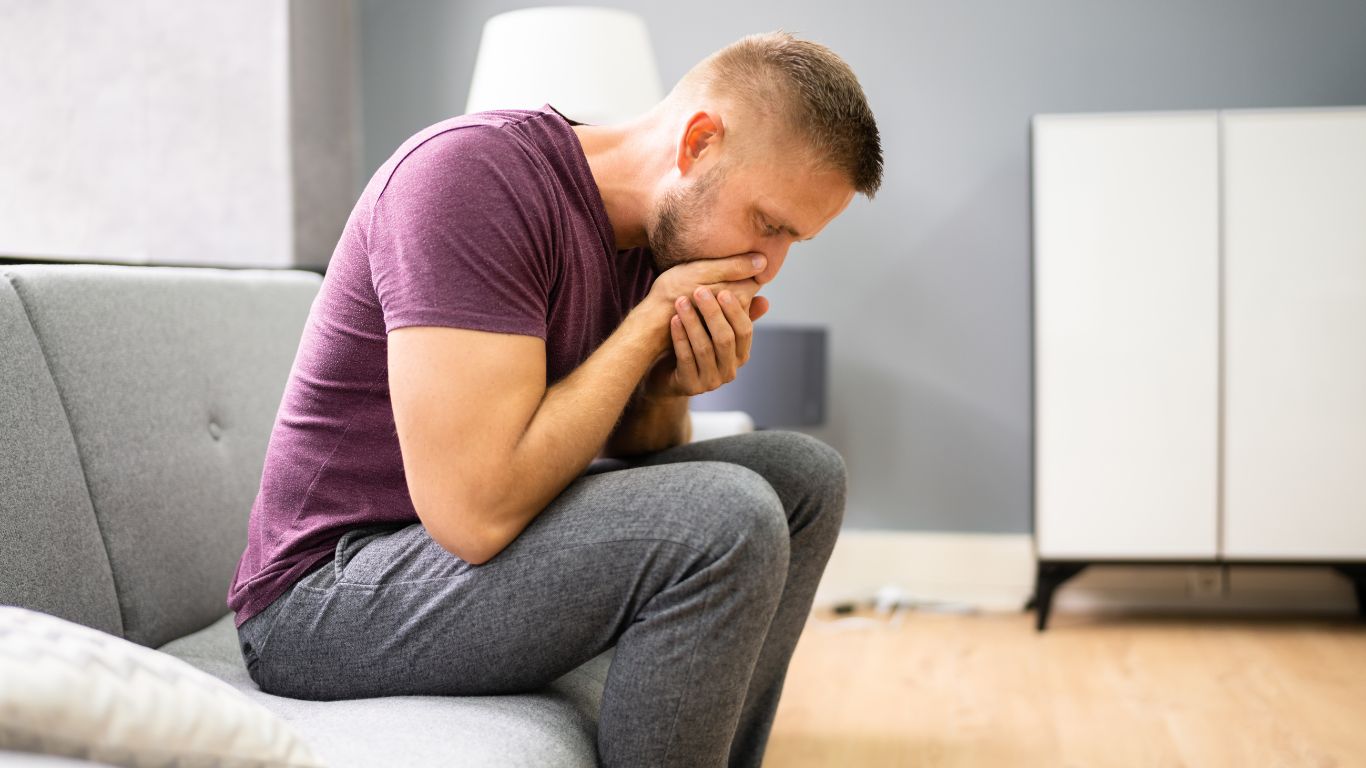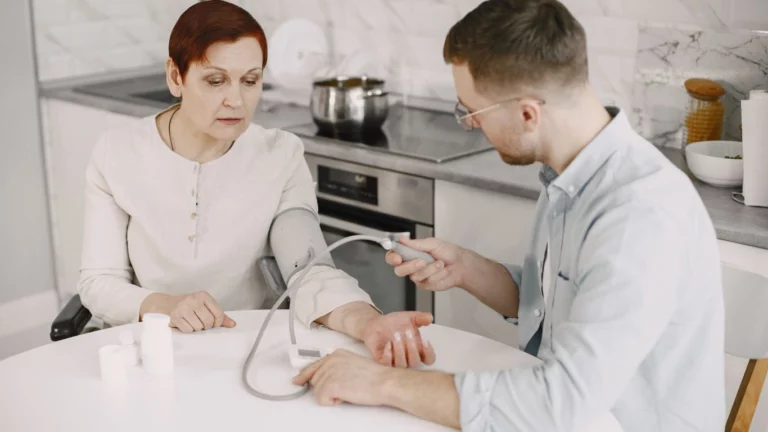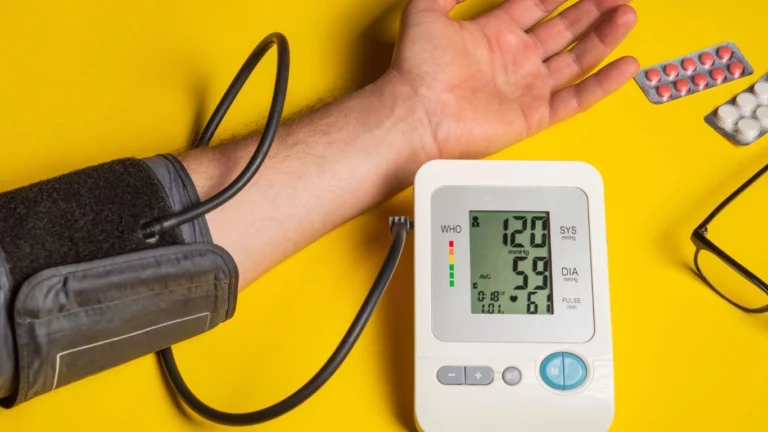Best Lifestyle Changes for GERD: Say Goodbye to Heartburn Naturally
If you’ve ever dealt with GERD (Gastroesophageal Reflux Disease), you know just how frustrating and uncomfortable it can be. The burning sensation, the regurgitation, the feeling like something is stuck in your throat—yeah, I’ve been there too, and so have countless people I’ve helped. The good news? Making the best lifestyle changes for GERD can dramatically improve your symptoms and even help you avoid medication in some cases. Let’s dive into the real, practical changes that can make a difference.
Why Lifestyle Changes Matter More Than You Think
People often assume GERD is just about popping antacids or avoiding spicy food, but it’s way more complex. Your daily habits, stress levels, and even how you sleep play a significant role. Over the years, I’ve seen patients transform their digestive health simply by tweaking small things in their routine. So, if you’re tired of dealing with reflux, let’s start with some fundamental shifts.
1. Eating Smarter: It’s Not Just About Avoiding Spicy Foods

We’ve all heard that certain foods trigger acid reflux, but managing GERD isn’t just about cutting out spicy food. It’s about a total shift in how, when, and what you eat.
✅ Ditch the Late-Night Munchies
One of the biggest culprits behind nighttime reflux? Eating too close to bedtime. When you lie down with a full stomach, gravity isn’t on your side anymore, and acid easily creeps up your esophagus.
- Golden Rule: Stop eating at least 2-3 hours before bed.
- Try a light evening snack if you must, like a banana or some oatmeal.
- Skip the greasy, fatty foods at night—they take longer to digest.
✅ Portion Control is Key
Overeating is a surefire way to trigger reflux. Your stomach can only handle so much at a time, and overloading it forces stomach acid upward.
- Eat smaller meals throughout the day instead of three big ones.
- Listen to your body—don’t eat until you’re stuffed.
- Chew slowly; digestion starts in the mouth!
✅ Know Your Triggers (and Replace Them!)
GERD triggers are different for everyone, but some common ones include:
- Caffeine – Try herbal tea instead.
- Carbonated drinks – Swap for still water or coconut water.
- Fried & greasy foods – Bake, grill, or steam instead.
- Acidic fruits (like oranges) – Go for bananas, melons, or pears.
2. Fixing Your Sleep Habits for GERD Relief

Did you know your sleeping position can either worsen or improve your GERD symptoms? I can’t tell you how many people have told me their nighttime reflux improved dramatically just by changing how they sleep.
✅ Sleep on Your Left Side
Yep, it’s that simple. Studies have shown that sleeping on your left side can reduce acid reflux compared to lying on your right. This positioning helps keep stomach acid where it belongs.
✅ Elevate Your Head
Flat sleeping allows acid to travel up easily, but propping yourself up helps keep it down.
- Use a wedge pillow or adjust your bed frame for an incline.
- Stacking pillows isn’t as effective—it bends your neck instead of keeping your torso elevated.
✅ Avoid Eating Before Bed (Again!)
We already talked about this, but it’s worth repeating. Eating late = higher risk of nighttime heartburn. Trust me, your sleep (and your esophagus) will thank you.
3. Managing Stress: Your Gut Feels What You Feel

Ever notice how stress makes your stomach feel off? That’s because stress directly affects your digestive system, leading to increased acid production and even weakening your esophageal muscles.
✅ Try Deep Breathing & Meditation
Just five minutes of deep breathing can help relax your digestive system. Apps like Calm or Headspace are great for guided relaxation.
✅ Stay Active (But Avoid Intense Workouts After Eating)
- Gentle activities like yoga and walking can improve digestion.
- Avoid heavy lifting or intense cardio right after meals—it can make reflux worse.
✅ Cut Back on Caffeine and Alcohol
It’s tough, I know. But both caffeine and alcohol relax the lower esophageal sphincter (LES), making reflux more likely. Swap coffee for herbal tea and limit alcohol to occasional, moderate amounts.
4. Smart Drinking Habits: What You Sip Matters

Ever felt that instant burning sensation after chugging a cup of coffee or a fizzy soda? Yeah, me too. The truth is, what you drink is just as important as what you eat when it comes to GERD management. Some drinks soothe the stomach, while others practically invite acid reflux to ruin your day.
✅ Best Drinks for GERD
Thankfully, not all beverages are off-limits! These are some gut-friendly options:
- Herbal Teas: Chamomile, ginger, and licorice root teas can ease digestion and reduce acid production.
- Alkaline Water: Helps neutralize stomach acid and keep things balanced.
- Coconut Water: Naturally soothing and packed with electrolytes.
- Low-Fat Milk or Plant-Based Alternatives: Almond milk, in particular, is great for neutralizing acid.
❌ Drinks to Avoid
If you’re serious about keeping GERD under control, here’s what you might want to cut back on:
- Coffee & Caffeinated Teas: Caffeine relaxes the lower esophageal sphincter (LES), making reflux more likely.
- Carbonated Beverages: Bubbles = bloating, and bloating = pressure on your LES.
- Alcohol: Sorry, but wine and cocktails can be major GERD triggers.
- Orange & Tomato Juice: Highly acidic and can worsen symptoms.
5. The Power of Weight Management in GERD Control

Let’s talk about the weight factor. It’s not just about looking good—excess weight, especially around the abdomen, puts serious pressure on your stomach, pushing acid up into your esophagus. Trust me, I’ve seen patients experience significant relief just by shedding a few extra pounds.
✅ Small Changes That Make a Big Difference
You don’t need to go on an extreme diet to see results. Here are some easy adjustments:
- Move More: Even a 30-minute walk daily can improve digestion and help with weight control.
- Eat Mindfully: Pay attention to portion sizes and avoid mindless snacking.
- Balance Your Plate: A mix of lean proteins, healthy fats, and fiber-rich foods keeps digestion smooth.
✅ Why Crash Diets Won’t Work
Some people try to lose weight fast by skipping meals or going on extreme low-carb diets. Bad idea! Skipping meals can actually increase acid production, making reflux worse. Instead, focus on sustainable, healthy habits.
6. The Hidden Role of Posture in Acid Reflux
Ever notice your reflux flares up more when you’re slouched over at your desk? Your posture plays a bigger role than you think! When you hunch forward, you’re actually compressing your stomach, making it easier for acid to rise up.
✅ Improve Your Posture for Better Digestion
- Sit up straight while eating to keep your stomach aligned.
- After meals, avoid slouching—stand or walk around instead.
- At work, use an ergonomic chair to support your spine.
✅ Avoid Bending Over After Eating
If you need to pick something up, bend at your knees rather than at your waist. Bending forward puts pressure on your stomach and can cause immediate reflux.
7. When to See a Doctor: Recognizing Red Flags
While lifestyle changes help most people manage GERD effectively, there are times when you need medical advice. GERD isn’t just an inconvenience—it can lead to serious complications if left untreated.
✅ Symptoms That Require Medical Attention
If you experience any of the following, it’s time to check in with a doctor:
- Frequent heartburn (more than twice a week).
- Difficulty swallowing or feeling like food is stuck.
- Unexplained weight loss or loss of appetite.
- Chronic cough or hoarseness.
- Severe chest pain (always rule out heart issues!).
✅ Tests and Treatments
Your doctor may recommend tests like an endoscopy or pH monitoring to check the severity of your condition. If lifestyle changes aren’t enough, medications or even surgical options might be discussed.
8. Case Studies & Real-Life Examples

Let’s talk about real people who’ve successfully managed their GERD through lifestyle changes. I’ve worked with countless individuals who were tired of relying on medication and wanted a natural approach to relief. Here are a couple of inspiring stories.
✅ Sarah’s Journey: From Daily Heartburn to GERD-Free Living
Sarah, a 38-year-old teacher, struggled with chronic heartburn for years. She was popping antacids like candy and sleeping with a bottle of water next to her bed. After making just a few key changes—like cutting back on coffee, eating smaller meals, and elevating her bed—her symptoms improved dramatically. Within three months, she barely needed medication.
✅ James’ Struggle: Overcoming Severe Acid Reflux Naturally
James, a 45-year-old sales executive, had a stressful job, a love for spicy food, and a habit of eating late at night. His GERD was so severe that he often woke up choking on acid. When he started practicing stress management techniques, changed his diet, and prioritized exercise, his symptoms decreased by 80%—without any medication!
9. Key Takeaways: What You Need to Remember
GERD doesn’t have to take over your life. The key to managing it successfully is consistency. Let’s quickly recap the most important lifestyle changes:
- Eat Smart: Avoid trigger foods, eat smaller meals, and stop eating late at night.
- Sleep Better: Elevate your head, sleep on your left side, and give yourself time to digest before bed.
- Drink Wisely: Skip acidic drinks and carbonated sodas; opt for herbal teas and alkaline water.
- Manage Stress: Try deep breathing, meditation, or light exercise to keep stress-induced reflux at bay.
- Watch Your Weight: Even small weight loss can relieve pressure on your stomach.
- Mind Your Posture: Sit and stand tall to prevent unnecessary stomach compression.
10. FAQs
Still have questions? Let’s tackle some of the most common ones.
✅ Can GERD be cured completely?
GERD is a chronic condition, but with the right lifestyle changes, many people experience long-term relief. In some cases, medication or surgical intervention may be necessary.
✅ How long does it take to see improvements with lifestyle changes?
It depends on the individual, but many people notice a difference within a few weeks of making adjustments to their diet, sleep, and habits.
✅ Is it okay to drink coffee if I have GERD?
Some people can tolerate low-acid coffee in moderation. However, if coffee worsens your symptoms, consider switching to herbal tea or decaf options.
✅ Can stress alone cause GERD?
Stress doesn’t directly cause GERD, but it can make symptoms worse by increasing stomach acid production and affecting digestion. Managing stress effectively can help reduce flare-ups.
11. Bonus: Additional Resources & DIY Tips
Here are some extra tools and tips to help you on your GERD-free journey:
- GERD-Friendly Recipe Guides: Find delicious, reflux-safe meals at Reflux Cookbook.
- GERD Support Groups: Connect with others at GERD Friendly.
- Apps for Tracking Symptoms: Apps like MySymptoms can help identify triggers.
DIY GERD Remedies
While lifestyle changes are key, these home remedies can provide extra relief:
- Aloe Vera Juice: A natural anti-inflammatory for your esophagus.
- Baking Soda Water: Helps neutralize acid (use sparingly).
- Chewing Gum: Increases saliva production, which neutralizes stomach acid.
12. Appendix: References, Disclaimer & Call to Action
References
For further reading on GERD and lifestyle management, check out these reputable sources:
- National Center for Biotechnology Information (NCBI)
- Mayo Clinic – GERD Information
- WebMD – GERD Symptoms & Treatment
Disclaimer
This article is for informational purposes only and should not replace medical advice. Always consult a healthcare professional before making significant dietary or lifestyle changes.
Call to Action
If you found this guide helpful, share it with someone who needs it! And if you have any questions or want to share your GERD journey, drop a comment below. Let’s support each other in living reflux-free!

Camellia Wulansari is a dedicated Medical Assistant at a local clinic and a passionate health writer at Healthusias.com. With years of hands-on experience in patient care and a deep interest in preventive medicine, she bridges the gap between clinical knowledge and accessible health information. Camellia specializes in writing about digestive health, chronic conditions like GERD and hypertension, respiratory issues, and autoimmune diseases, aiming to empower readers with practical, easy-to-understand insights. When she’s not assisting patients or writing, you’ll find her enjoying quiet mornings with coffee and a medical journal in hand—or jamming to her favorite metal band, Lamb of God.







